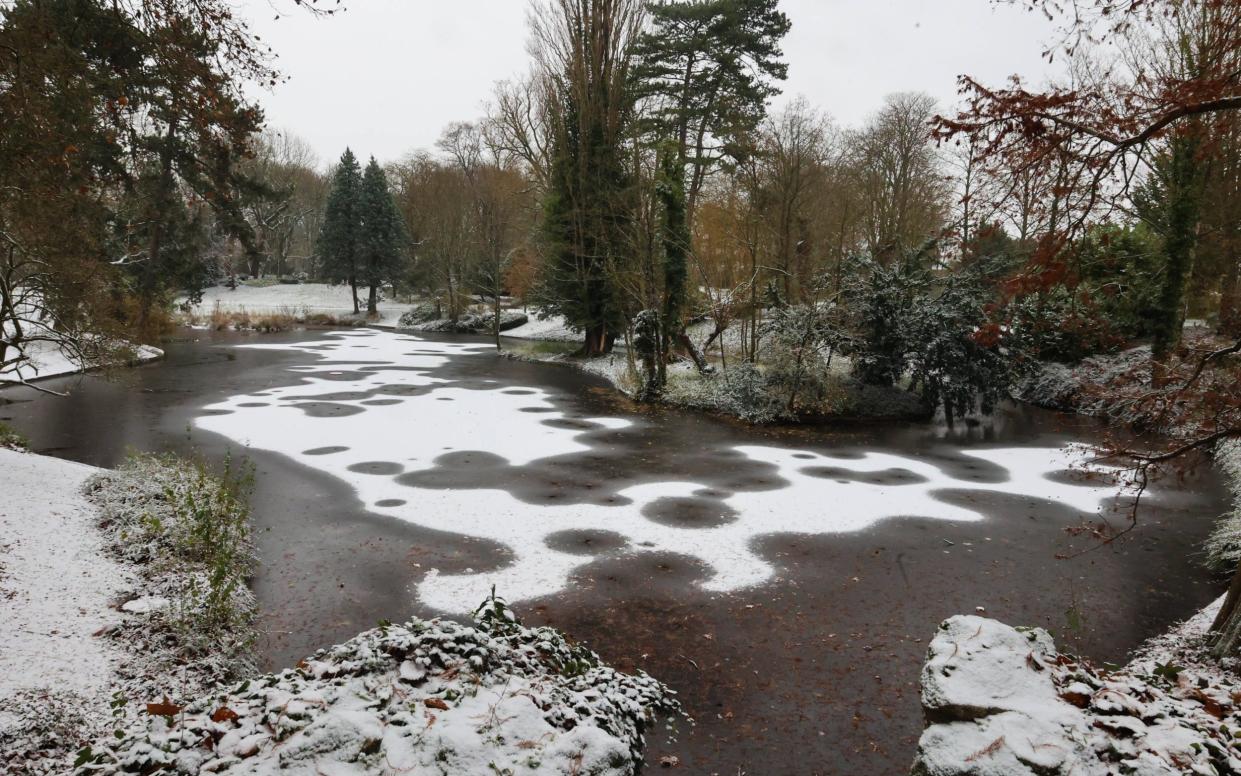Algorithm that replaced weather forecasters predicts heatwave in December

French weather forecasters are going on strike over their ousting by algorithms that predicted a heatwave in freezing Strasbourg this week.
Three unions at Météo-France said they would down tools starting on Monday until Jan 7 because of the increasing reliance on a new forecast system called 3P “that gives pride of place to automation” according to Jérôme Lartisant, the head of the FO union.
The FO union, along with Solidaires-Météo and SNM-CGT, said that, barring major weather warnings, automated bulletins and forecasts were no longer systematically supervised by humans, and could be published “as they are”.
Since Nov 13, weather forecast data models have been crunched together via an algorithm and then directly sent to Météo-France’s internet site or mobile application.
The software that has led to the strike has predicted that the eastern city of Strasbourg will hit a baking 28C on Dec 9 despite it currently experiencing freezing temperatures.
‘A whole load of failings’
The FO union published the error on X, formerly Twitter, to “illustrate the errors of this forecasting chain, which is not yet complete but which has been declared operational because there are no forecasters to keep doing the job”.
“There are far fewer human interventions and proofreaders,” said François Giroux, the CGT national manager for regional channel France 3. “We’ve seen errors in the forecasts. We have customers who are not happy and who are calling us to tell us about it.”
He added: “This data includes absurd mistakes, forecasts of temperatures of 28 degrees in Brittany in November, forecasts of snow when temperatures are at 10 degrees – a whole load of failings that our organisation isn’t able to correct.”
Unions have blamed staff cuts for the debacle. Mr Lartisant told Libération that previously, “seven people assessed supercomputer bulletins, one for each major region, seven days a week, 24 hours a day. With the new organisation, there is now just one person in charge of this”.
Liénor Feuga, of Solidaires-Météo, told France Inter radio: “In the past 15 years, Météo-France has lost around a third of its staff and this shift (to the automated system) has taken place due to a lack of human resources when the tools were clearly not ready for this change.”
She added: “Forecasters are suffering immensely and it sends a catastrophic image whereas we claim to be an organisation that is on the absolute cutting edge in the field of forecasting.”
Météo-France management says it has entered talks with unions over the issue and that it is confident that any outstanding “bugs” will swiftly be ironed out.
‘This is a hugely exciting technology’
The strike comes less than a month after reports that a new AI model created by Google DeepMind can produce precise forecasts in less than a minute, after being trained on 40 years of meteorological data from weather stations, satellite images and radar records.
GraphCast has already shown it can identify extreme weather events much sooner, spotting Hurricane Lee would make landfall in Nova Scotia nine days before it hit in September – three days earlier than traditional forecasts.
Unlike traditional models which rely on running current conditions through physics equations and computer algorithms, the new programme uses a neural network to learn how the atmosphere evolves over time.
Speaking to The Telegraph, Matthew Chantry, machine learning co-ordinator at the European Centre for Medium-Range Weather Forecasts, which is already using the program, said: “In the last 18 months, we’ve seen the emergence of a new possibility for making weather forecasts directly with machine learning models.
“This is a hugely exciting technology. It is likely the beginning of a revolution in how our weather forecasts are created.”

